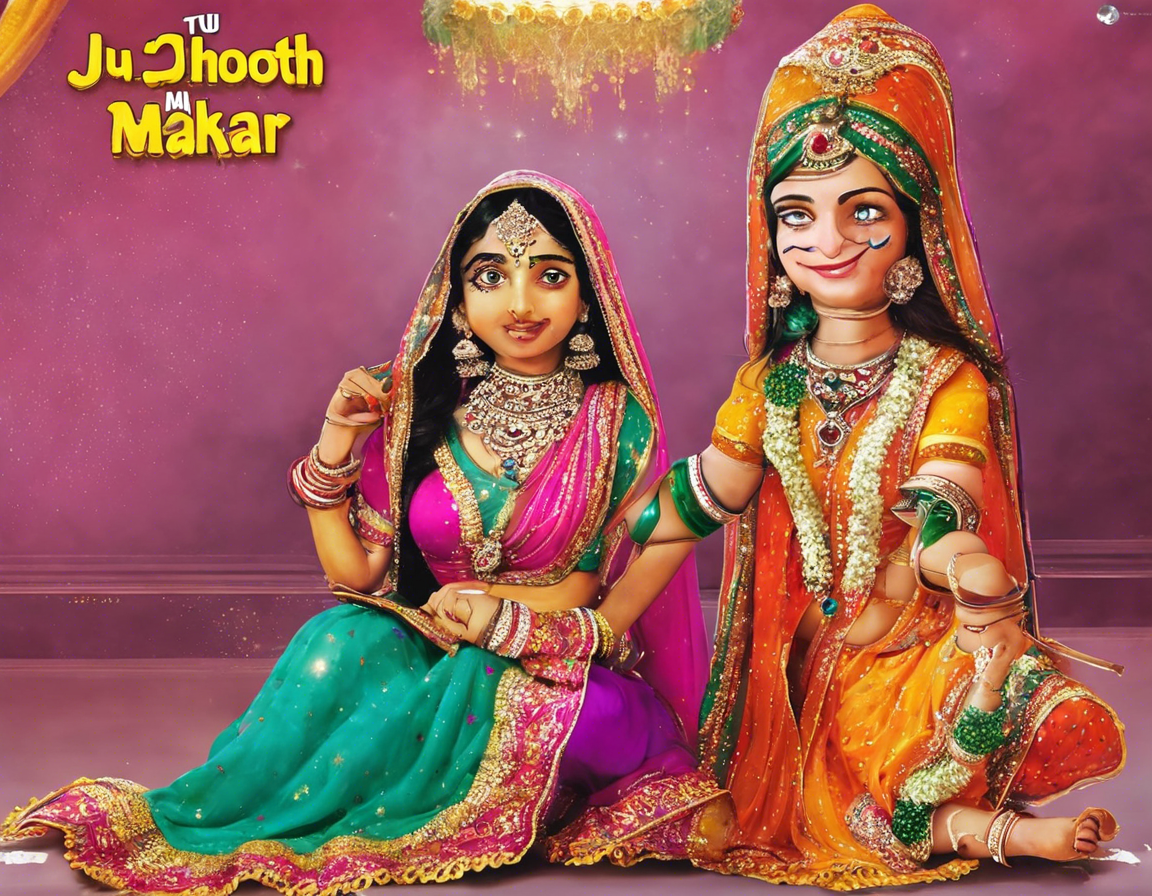Introduction
Tu Jhoothi Main Makkar is a popular Hindi proverb that translates to “You are a liar, I am a trickster” in English. It is often used in colloquial language to describe situations where individuals are trying to outsmart each other or play mind games. In this article, we will delve deeper into the origins of this phrase, its cultural significance, and how it is used in different contexts.
Origins of Tu Jhoothi Main Makkar
The origins of Tu Jhoothi Main Makkar can be traced back to the rich tapestry of Hindi literature and storytelling. It is a reflection of the intricate social dynamics and interpersonal relationships prevalent in Indian society. The phrase encapsulates the essence of playful banter, cunning wit, and the art of deception.
Cultural Significance
In Indian culture, verbal sparring and clever wordplay are highly valued skills. Tu Jhoothi Main Makkar embodies the spirit of friendly rivalry and the playful exchange of humorous barbs. It is a way to amicably challenge someone’s claims or statements without causing offense. This cultural nuance reflects the importance of wit, intelligence, and quick thinking in interpersonal interactions.
Contextual Usage
The phrase Tu Jhoothi Main Makkar is often used in a lighthearted manner during social gatherings, family gatherings, and even in Bollywood movies. It adds a touch of humor and charm to conversations, making them more engaging and enjoyable. Additionally, it can be employed as a tool to diffuse tense situations or to lighten the mood in serious discussions.
Interpretation and Implications
On a deeper level, Tu Jhoothi Main Makkar symbolizes the complex interplay of truth and deception in human relationships. It highlights the dual nature of communication, where individuals may use words to both reveal and conceal their true intentions. This duality adds layers of intrigue and complexity to interpersonal dynamics, making interactions more nuanced and intriguing.
Applications in Modern Contexts
In today’s fast-paced world, the essence of Tu Jhoothi Main Makkar can be seen in various aspects of life, from social media banter to corporate negotiations. The ability to navigate through subtle layers of communication, decipher hidden meanings, and respond with wit and intelligence is a valuable skill in personal and professional settings. By understanding the nuances of this phrase, individuals can enhance their communication abilities and build stronger connections with others.
FAQs
Q1. What is the literal translation of “Tu Jhoothi Main Makkar”?
A1. The literal translation of “Tu Jhoothi Main Makkar” is “You are a liar, I am a trickster.”
Q2. How is the phrase “Tu Jhoothi Main Makkar” used in everyday conversations?
A2. It is used in a playful manner to challenge someone’s statements or claims without causing offense.
Q3. What cultural values does “Tu Jhoothi Main Makkar” reflect?
A3. It reflects the importance of wit, humor, and playful banter in Indian culture.
Q4. Can “Tu Jhoothi Main Makkar” be used in serious discussions?
A4. Yes, it can be used to lighten the mood or diffuse tense situations in serious discussions.
Q5. How can one improve their communication skills using the concept of “Tu Jhoothi Main Makkar”?
A5. By understanding the nuances of subtle communication and responding with wit and intelligence in interactions.
In conclusion, Tu Jhoothi Main Makkar is more than just a witty phrase in Hindi; it is a reflection of the art of communication, the playful nature of human interactions, and the dynamic nuances of language. By embracing the spirit of this proverb, individuals can navigate through the complexities of social interactions with charm, wit, and intelligence, creating stronger connections and fostering deeper relationships in the process.
